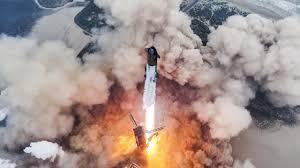Getting your Trinity Audio player ready...
Russian cosmonaut Oleg Kononenko returned last week from the International Space Station (ISS) with an impressive achievement – accumulating a total of 1,111 days in space. Kononenko, who celebrated his 60th birthday a few weeks ago while in orbit, is the first person to surpass the thousand-day mark in space.
He reached this milestone over five missions to the ISS, with his latest mission setting a new record for the longest single stay on the station. Kononenko and fellow cosmonaut Nikolai Chub spent 374 days on the ISS, surpassing the previous record of 371 days set about a year ago. Along with them, American astronaut Tracey Dyson returned from space after spending "only" 184 days aboard the station.
The end of Kononenko and Chub's mission also marked the conclusion of the 71st crew's mission to the station, which has been continuously manned since late 2000, and the start of the 72nd crew's mission. Chub joined the crew unexpectedly, along with her colleague Barry Wilmore, after their planned eight-day stay on Boeing's "Starliner" test flight was extended due to spacecraft malfunctions.
NASA decided to return the spacecraft empty and alter the crew's composition. Two additional crew members, American astronaut Nick Hague and Russian cosmonaut Alexander Gorbunov, were set to join the station last week, but their launch aboard SpaceX's Dragon spacecraft was postponed, due to a tropical storm in Florida.
"Oleg, we'll miss your hundreds of stories around the dinner table, but I guess that is what you get for having over a thousand days in space," Sunita Williams said, during the farewell ceremony for the astronauts returning to Earth and the station's command handover ceremony.
Musk vs. the Rest of the World
SpaceX is currently awaiting approval for the fifth test of its Starship system – its massive spacecraft designed to land humans on the Moon and eventually on Mars. After the fourth test in June this year, the company announced it would be ready for a fifth launch as early as August. However, the U.S. Federal Aviation Administration (FAA) recently stated that approval for the next test is expected only by the end of November.
3 View gallery


Failed launch of Starship spacecraft from SpaceX's space base in Texas
(Photo: Space)
Meanwhile, the FAA decided a week ago to fine SpaceX over $600,000 for alleged regulatory violations related to its activities at the Cape Canaveral space base in Florida, unrelated to Starship launches, which take place in Texas.
One fine, amounting to $350,000, was imposed following a launch in June this year, during which the company used an unauthorized communications room and skipped a required countdown step scheduled two hours before the launch. Another fine of $283,000 was issued because, during a July launch, SpaceX used new refueling tanks without prior approval.
Musk calls FAA chief to resign over fines imposed on SpaceX
In response, SpaceX sent a letter to Congress stating that these were minor issues that should not have been classified as violations or resulted in fines. SpaceX CEO and founder Elon Musk tweeted on X (the platform he owns) that the company intends to file a suit against the FAA for regulatory overreach. The conflict escalated further last week when Musk called on FAA chief Michael Whitaker to resign.
This was in response to Whitaker's remarks during a Congress hearing concerning SpaceX's safety requirements. The hearing, held by the United States House Committee on Transportation and Infrastructure Subcommittee on Aviation, primarily focused on safety issues with Boeing's aircraft manufacturing systems.
Later, Republican Rep. Kevin Kiley mentioned the issues with the Starliner spacecraft and asked Whitaker if Boeing was not subject to looser oversight compared to what seems to be stricter scrutiny of SpaceX. Whitaker replied that the FAA acts based on safety considerations and that fines are the only tool they have to get compliance with safety matters. He further addressed Kiley’s question about the delays in FAA's licensing process for the fifth flight test of Starship, stating that it was also done for safety reasons and noted that Starshipn failed to provide an updated sonic boom analysis within the designated time frame.
The company had already complained about three weeks ago that the report was delayed due to excessive demands from environmental regulators, including the Fish and Wildlife Service. Even before the hearing, Musk tweeted: "We need multiple Fish licenses to launch a rocket."
Trump says if elected, U.S. would land on Mars by 2028
Adding to the heated debate, Republican presidential candidate Donald Trump entered the fray last week. While he did not directly address the issue of SpaceX's regulation, he promised at a campaign rally in North Carolina that, if elected, the United States would land on Mars by 2028.
He even mentioned Musk, known as one of his supporters, as the one who would bring this vision to life, a goal Musk himself frequently discusses. In what may or may not be a related development, Musk presented another element of his updated Mars vision this week, stating that within the next two years, he intends to launch five uncrewed Starship missions to the neighboring planet in preparation for a manned launch. For now, realizing this vision depends not only on Musk's groundbreaking efforts but also on his ability to meet the safety and environmental requirements set by regulatory bodies.
Get the Ynetnews app on your smartphone:



